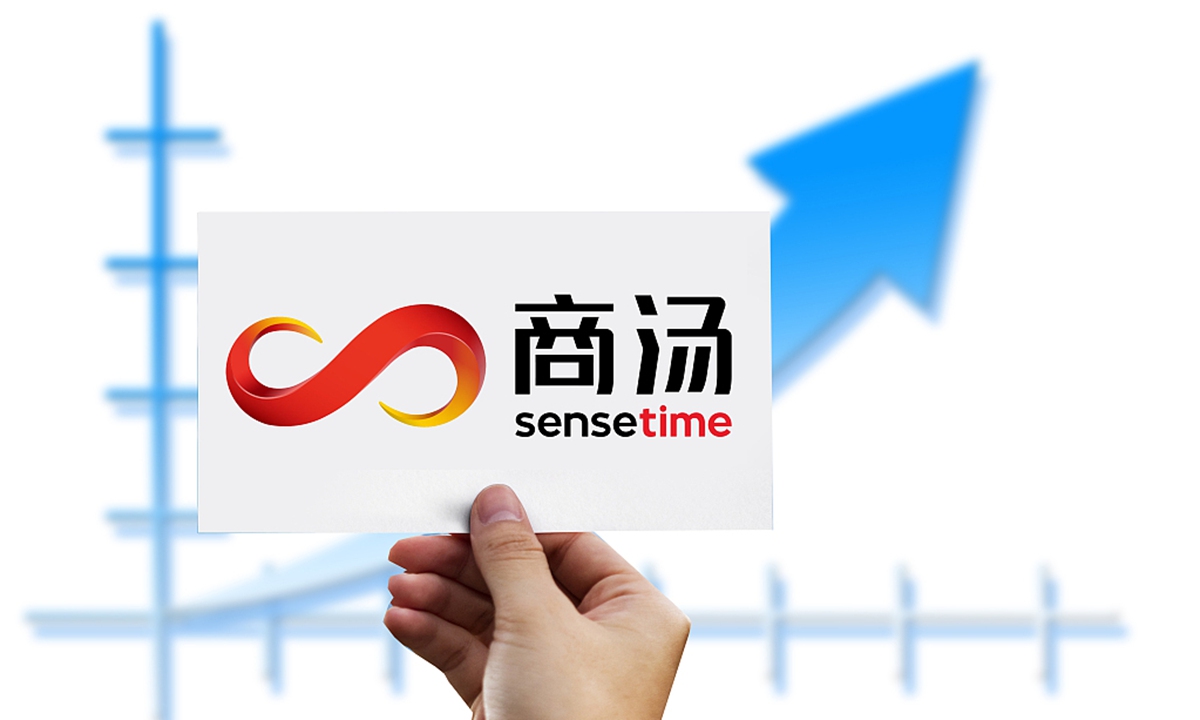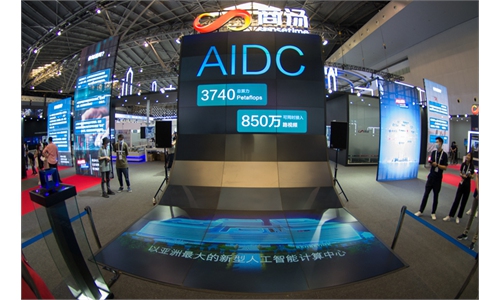
SenseTime. Photo: CFP
SenseTime, a Chinese artificial intelligence giant, is supposed to set the final price of its Hong Kong initial public offering on Friday, and on the same day, US will put SenseTime on an investment blacklist, casting a shadow over its listing.
The action against SenseTime, which Washington says enables human rights abuses against Muslim Uygurs in Xinjiang, will be part of a package of sanctions against a number of countries to mark Human Rights Day, according to three people familiar with the decision, reported FT.
Reuters reported that SenseTime Group is discussing the fate of its planned $767 million Hong Kong IPO.
Market watchers said that the US is implementing a business "Cold War" against China, and AI has obviously become the next target of US tech suppression against China after 5G, but China's AI will not be beaten down by US as AI sector has been catching up quickly with the US.
SenseTime plans to sell 1.5 billion shares in the IPO at a price of HK$3.85 ($0.49) to HK$3.99 each. The company was scheduled to determine the final price on Friday and allocate the shares to institutional investors, according to the firm's filings.
SenseTime is due to start trading on December 17, the filings reveal, and according to its issuance price range, the company's market value may exceed HK$100 billion after listing, which makes it the largest AI unicorn on the Hong Kong market.
AI is likely to be the next target of US suppression of Chinese tech, because AI is a technological system that integrates big data and chips. And as a leading company in AI in China, SenseTime has implemented solutions across many key industries, Liu Dingding, a Beijing-based independent tech analyst, told the Global Times on Friday.
"There are still issues including a business Cold War that can't be ignored," Dong Shaopeng, an expert adviser for the China Securities Regulatory Commission, told the Global Time on Friday.
Established in 2014, SenseTime's main business is computer vision technology and deep learning algorithms, and it has received multiple rounds of financing from leading institutions such as Alibaba, IDG, and CDH Investments.
According to the firm's prospectus, during the last three-and-a-half years, SenseTime's revenue increased from 1.85 billion yuan ($290 million) in 2018 to 3.44 billion yuan in 2020, achieving a compound annual average growth rate of 36.4 percent. At the same time, the company recorded revenue of 1.65 billion yuan in the first half of 2021, a year-on-year increase of 91.8 percent.
However, the blacklisting could be problematic for SenseTime's US shareholders. As FT reported, Silver Lake, a US private equity firm which holds a 3 percent stake in the company, has agreed to lock up some of the shares for six months following the IPO. Fidelity and Qualcomm own smaller stakes. HSBC is the only Western investment bank involved in the IPO.
Although China has yet to overtake the US in terms of core technologies such as chips and operating systems, AI has already been integrated into a large number of sectors across China's economy, pushing the country closer to catching up with the US.
AI represents a core breakthrough in China's tech competition with the US, and is the reason why the US will focus on suppressing Chinese AI firms, Liu said, stating he could not rule out the possibility that the US will seek to restrict more Chinese AI companies.
Analysts stressed that China's development in the AI sector has been catching up quickly with the US, especially in the application of the technology, which has been successfully applied in more industries in China.
The US targeting Sensetime also shows that the company has been rising rapidly, said Liu, adding that Chinese enterprises have been continuously achieving major breakthroughs even amid the US' further potential target which will have great potential in the global market other than the US.
For Chinese enterprises that may be targeted by the US, establishing and consolidating a solid base in the global industry chain is a critical step needed in defending themselves, experts said.

